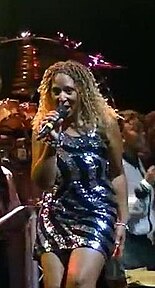
Reggae is a music genre that originated in Jamaica in the late 1960s. The term also denotes the modern popular music of Jamaica and its diaspora. A 1968 single by Toots and the Maytals, "Do the Reggay", was the first popular song to use the word reggae, effectively naming the genre and introducing it to a global audience. While sometimes used in a broad sense to refer to most types of popular Jamaican dance music, the term reggae more properly denotes a particular music style that was strongly influenced by traditional mento as well as by American jazz and rhythm and blues, and evolved out of the earlier genres ska and rocksteady. Reggae usually relates news, social gossip, and political commentary. It is instantly recognizable from the counterpoint between the bass and drum downbeat and the offbeat rhythm section. The immediate origins of reggae were in ska and rocksteady; from the latter, reggae took over the use of the bass as a percussion instrument.
Roots reggae is a subgenre of reggae that deals with the everyday lives and aspirations of Africans and those in the African Diaspora, including the spiritual side of Rastafari, black liberation, revolution and the honouring of God, called Jah by Rastafarians. It is identified with the life of the ghetto sufferer, and the rural poor. Lyrical themes include spirituality and religion, struggles by artists, poverty, black pride, social issues, resistance to fascism, capitalism, corrupt government and racial oppression. A spiritual repatriation to Africa is a common theme in roots reggae.
The music of Jamaica includes Jamaican folk music and many popular genres, such as mento, ska, rocksteady, reggae, dub music, dancehall, reggae fusion and related styles.
Popular music of the United Kingdom in the 1970s built upon the new forms of music developed from blues rock towards the end of the 1960s, including folk rock and psychedelic rock movements. Several important and influential subgenres were created in Britain in this period, by pursuing the limitations of rock music, including British folk rock and glam rock, a process that reached its apogee in the development of progressive rock and one of the most enduring subgenres in heavy metal music. Britain also began to be increasingly influenced by third world music, including Jamaican and Indian music, resulting in new music scenes and subgenres. In the middle years of the decade the influence of the pub rock and American punk rock movements led to the British intensification of punk, which swept away much of the existing landscape of popular music, replacing it with much more diverse new wave and post punk bands who mixed different forms of music and influences to dominate rock and pop music into the 1980s.
Popular music of the United Kingdom in the 1980s built on the post-punk and new wave movements, incorporating different sources of inspiration from subgenres and what is now classed as world music in the shape of Jamaican and Indian music. It also explored the consequences of new technology and social change in the electronic music of synthpop. In the early years of the decade, while subgenres like heavy metal music continued to develop separately, there was a considerable crossover between rock and more commercial popular music, with a large number of more "serious" bands, like The Police and UB40, enjoying considerable single chart success.
Brit funk is a musical style that has its origins in the British music scene of the late 1970s and which remained popular into the 1980s. It mixes elements from jazz, funk, soul, urban dance rhythms and pop hooks. The scene originated in southern England and spread with support from DJs including DJ Froggy, Greg Edwards, Robbie Vincent, Chris Hill and Colin Curtis. Major funk acts included Jimmy James and the Vagabonds, Average White Band, Ian Dury & the Blockheads, Carl Douglas, Hot Chocolate, the Delegation, Hi-Tension, Light of the World, Level 42, Central Line, the Pasadenas, Beggar and Co and Soul II Soul. The genre also influenced 1980s new wave/pop groups such as Culture Club, Bow Wow Wow, Pigbag, Dexys Midnight Runners and Haircut 100.
Delroy George Wilson CD was a Jamaican ska, rocksteady and reggae singer. Wilson is often regarded as Jamaica's first child star, having first found success as a teenager. His youngest son, Karl "Konan" Wilson, has found success as part of British duo Krept and Konan.
In Jamaican popular culture, a sound system is a group of disc jockeys, engineers and MCs playing ska, rocksteady or reggae music. The sound system is an important part of Jamaican culture and history.
People from the Caribbean have made significant contributions to British Black music for many generations.

Dennis Bovell is a Barbados-born reggae guitarist, bass player and record producer, based in England. He was a member of a progressive rock group called Stonehenge, who later changed name and became the British reggae band Matumbi, and released dub-reggae records under his own name as well as the pseudonym Blackbeard. He is most widely known for his decades-spanning collaborations with Linton Kwesi Johnson.
Janet Kay Bogle is an English actress and vocalist, best known for her 1979 lovers rock hit "Silly Games".
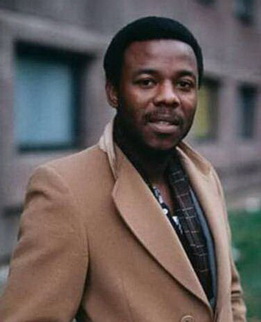
Lindel Beresford English, better known as Junior English, was a Jamaican reggae singer who began his career in the early 1960s before relocating to England.
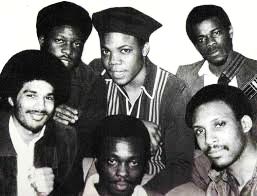
Beshara were a British reggae band from Moseley and Washwood Heath, Birmingham, that formed in 1976. The band are most notable for their 1981 lovers rock hit "Men Cry Too", which reached number 2 in the British reggae charts. Although known for their lovers rock singles, they were also very capable of recording roots reggae. This can be heard in the hymnal recording, "Glory Glory".

Carol Simms, better known as Kofi, is a British lovers rock singer who was a member of the group Brown Sugar prior to embarking on a solo career.

Brown Sugar was a British, London-based female vocal group who formed in 1976. The members were Pauline Catlin, Caron Wheeler and Carol Simms. Although short lived, the trio were influential and topped the British Reggae Chart on three occasions.
Melodisc Records was a record label founded by Emil E. Shalit in the late 1940s. It was one of the first independent record labels in the UK and the parent company of the Blue Beat label.

"Silly Games" is a song written by Dennis Bovell that was first released in 1979 as a single by Janet Kay. The single was a hit not only in the UK, where it reached number 2 that summer, but throughout Europe. Kay's appearance singing on Top of the Pops made it the first lover's rock tune on BBC Television's flagship popular music show. The song appeared again in 1990 as a re-recording, billed as by Lindy Layton featuring Janet Kay, which reached number 22 in the charts. A remix version of Kay's original recording spent three weeks in the UK Singles Chart, peaking at number 62.
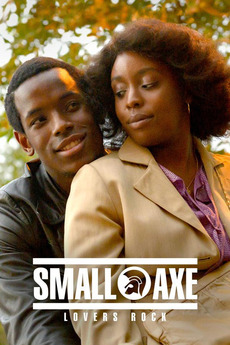
Lovers Rock is a 2020 romance film directed by Steve McQueen and co-written by McQueen and Courttia Newland. It stars Micheal Ward and Amarah-Jae St. Aubyn. The film was released as part of the anthology series Small Axe on BBC One on 22 November 2020 and Amazon Prime Video on 27 November 2020. It premiered as an opening film at the 58th New York Film Festival on 24 September 2020.

Hopelessly in Love is the debut album by English lovers rock singer Carroll Thompson, released in early 1981 by Carib Gems Records. The album followed, and includes, her two Leonard Chin-produced singles "I'm So Sorry" and "Simply in Love", which topped the British reggae charts. Thompson co-created C & B Productions, a first for a female reggae singer in Britain, and under this credit wrote and produced the album, working additionally with producer Anthony Richards. Backed by Thompson's C & B band, the album exemplifies the soul-infused mellow reggae style typical to lovers rock and Thompson's sweetly voice, with her songs discussing themes of romance and love.
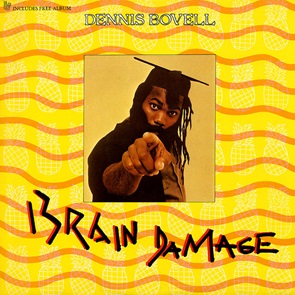
Brain Damage is the third studio album by Barbadian-British reggae musician Dennis Bovell, released in 1981 by Fontana Records. His first solo album under his own name, following two dub albums released as Blackbeard, it was Bovell's first recording at his South London-based Studio 80. Having begun to feel that reggae had not progressed as much as he would have liked, he conceived Brain Damage as an attempt to fuse the genre with numerous rhythmic styles from Europe, America, Africa and the Caribbean to highlight the genre's flexibility. The musician intended not to explore the international rhythms in a standard way but to take them to what he perceived as musical extremes. The direction was also inspired by the wide array of people in his audience.
